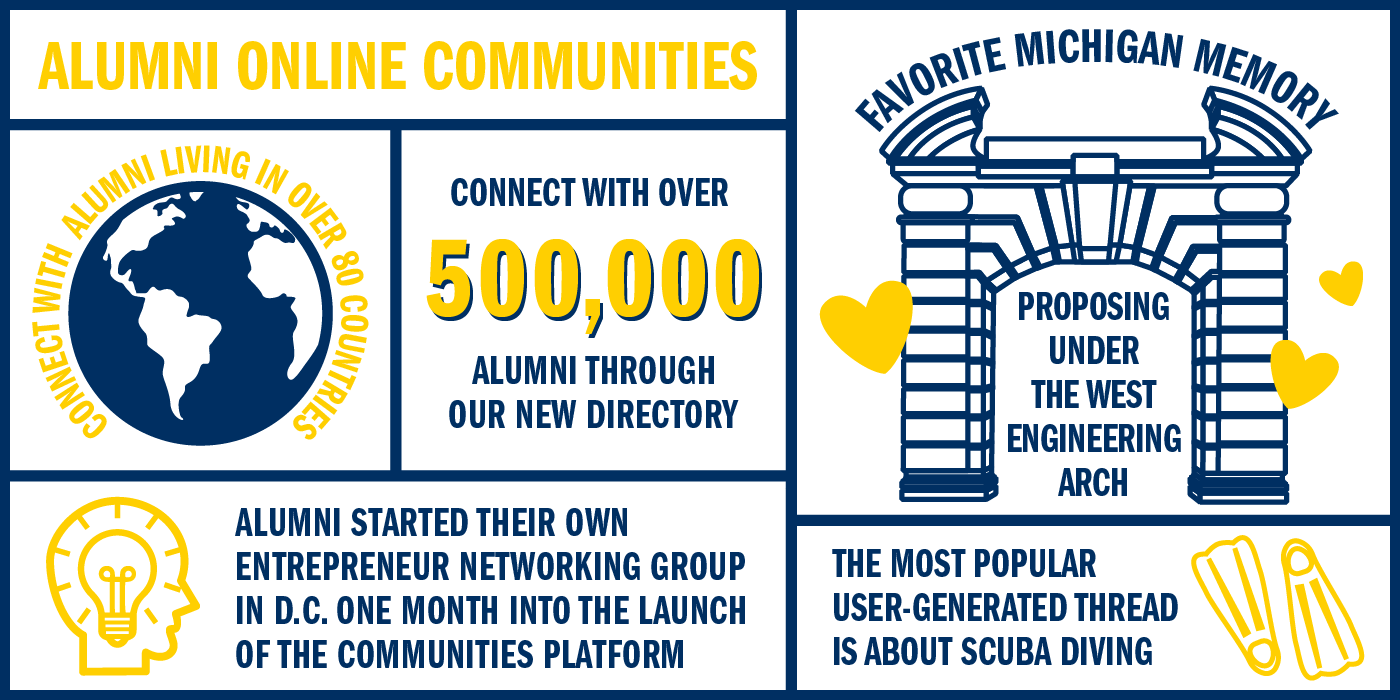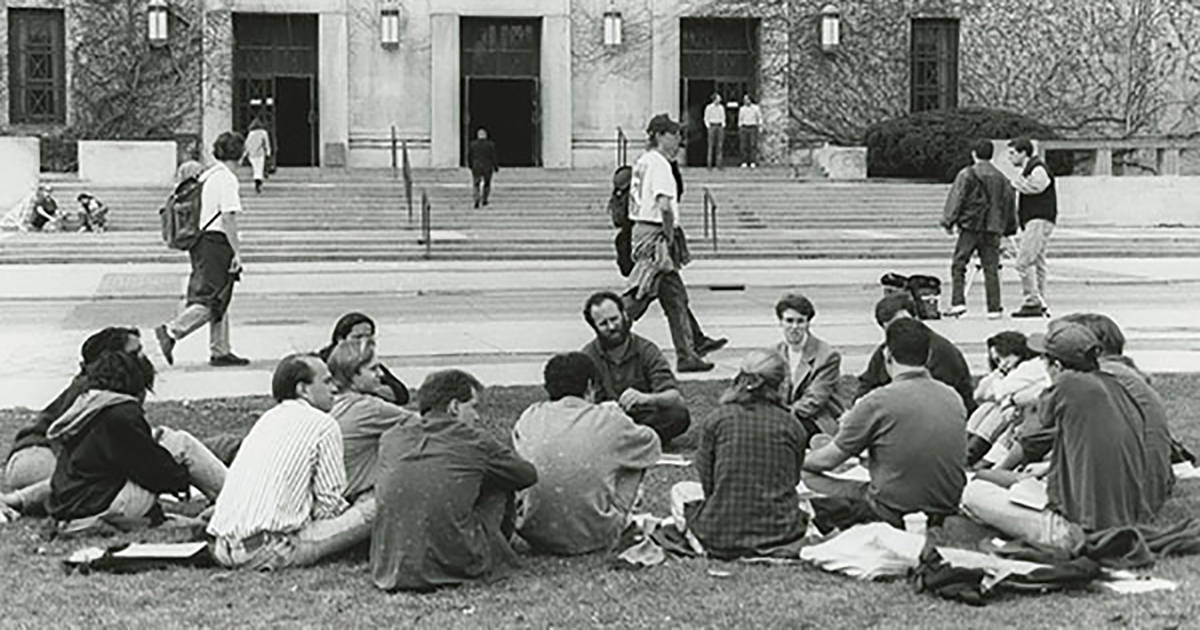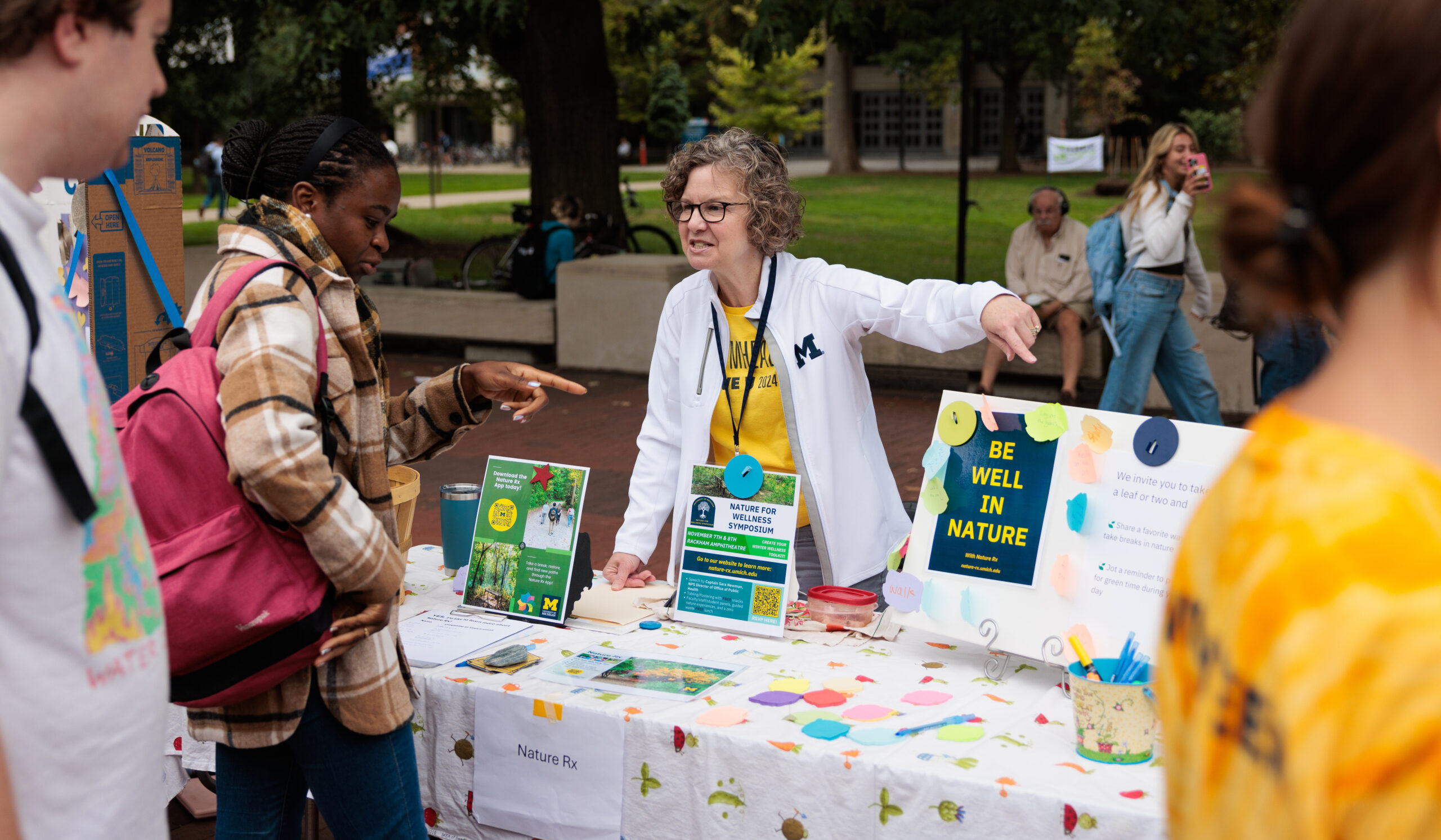Given his collegiate credentials, it is hardly surprising that Chris Nung Yoo, ’15, was the first person to create a special interest group on the Alumni Online Communities platform, the Alumni Association’s open digital forum where former Wolverines can connect and engage with one another.
As an undergraduate at the Ross School of Business, Yoo founded a student organization called U-Entrepreneurship (renamed StartUM). He also organized a student‐run entrepreneurship conference. So when he learned this past January that the U of M Club of Washington, D.C., was piloting a new alumni portal, he enthusiastically logged onto the site to create his profile.
Yoo included a photo of himself (dressed slickly in a tie and blazer), job information (he is a portfolio manager for a digital asset fund), a list of his philanthropic activities (Michigan Ross Alumni Club of Washington, D.C., the Human Rights Campaign), and a few hobbies (“capturing inspirational moments, and trading cryptocurrencies”). Then he posted for the first time on the discussion board, asking if anyone involved in startups in the area would like to get together.
Nearly two dozen alumni replied, and on April 2—fortuitously, the same night U-M played Villanova University in the championship game of the NCAA Men’s Basketball Tournament—around 20 alumni working in the area attended a happy hour Yoo arranged at a downtown bar.
“We shared college and startup stories,” he recalls. “It all happened because the communities platform gave us a way to engage with each other around a shared interest,” he says, adding that some of the group, no longer feeling like strangers, ended up watching the basketball game together at another venue.
“We are making it easier for alumni to tap into the power of the U-M network,” says Steve Burns,’89, MS’98, the Alumni Association’s global engagement director. Burns helped develop the new online communities platform, which is now open to all alumni. “It’s now simply a couple of clicks away for alumni to connect and engage with each other around their shared interests,” he explains, describing how users create their profiles and tag different topics, everything from education and entertainment to politics and parenting.
A quick glance through threads on the discussion board reveals a wide array of interests bringing alumni together. Having recently received his certification, one alumnus asked for the best scuba diving locations. Dozens offered suggestions. Another alumnus, Colin McWatters, ’15, inquired if any alumni were working in Rwanda. One month later, McWatters, who is working with the Rwanda Ministry of Health, met up with Lizzie Randolph, ’10, who was in Kigali working on a U-M partnership project with the University of Rwanda’s Medical and Nursing and Midwifery Schools.
Erik Ruselowski, ’03, president of the U of M Club of Washington, D.C., says he was excited when Burns approached him to ask if the club would like to pilot the platform. “I jumped at the opportunity. The D.C. club had been discussing how we could create something like this to connect people more broadly,” he says, adding that while it is still in its infancy, after seven months he is impressed.
“Alumni are coming out of the woodwork asking all sorts of questions, sharing ideas, and getting together,” he says. He is also surprised that the demographic is so wide, including alumni from the ’60s and ’70s up through recent graduates.
Yoo says he now has the long-term goal of creating a U-M startup model that could exist in cities across the country and possibly lead to alumni investing in these businesses, a sort of national incubator for U-M entrepreneurs. He is developing the strategy with fellow alumna and entrepreneur Lynn Chia, ’93, but for the moment is happy organizing monthly meetups in the district.
“We have almost 600,000 alumni out there,” says Burns. “The online community platform has the potential to empower alumni to tap into the network and directly connect with one another. Maybe it is to create a community of like-minded alumni, find a long-lost friend, or engage professionally. We are seeing this platform already make our vast global U-M community smaller and more accessible.”

Visit the Alumni Online Communities platform to join in the discussion.
Jennifer Conlin, ’83, is deputy editor of Michigan Alumnus.





